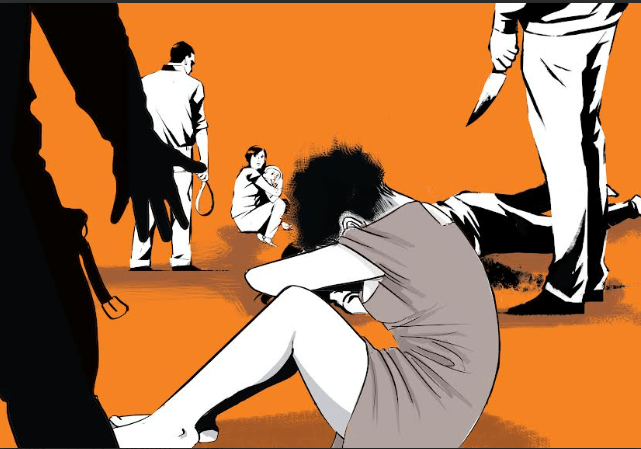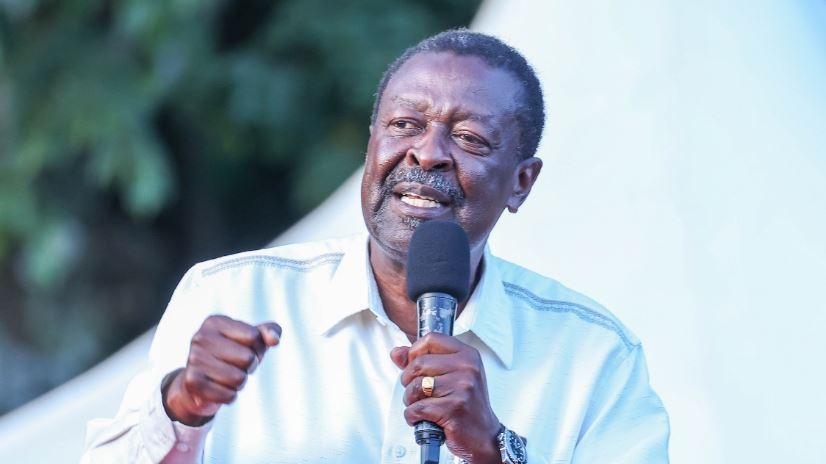
 Queenter Mbori, ED, Association of Media Women in Kenya (AMWIK)/HANDOUT
Queenter Mbori, ED, Association of Media Women in Kenya (AMWIK)/HANDOUT
The annual 16 Days of Activism Against Gender-Based Violence (GBV), a period internationally dedicated to combating violence against women and girls, commences once again.
This year's theme, Technology-Facilitated Gender-Based Violence (TFGBV), underscores the urgent realization that violence against women has transcended physical spaces and now thrives unchecked online.
Kenya also stands at a critical juncture, where promises
of protection for women clash with rising violence both in person and online.
Former President Uhuru Kenyatta pledged in 2021 to end GBV by 2026, but with
one year left, the crisis worsens without adequate intervention.
Kenya’s 2010 Constitution, praised for its progressive stance, explicitly guarantees equality, non-discrimination, and the right to life and security for all citizens.
Article 27 enshrines gender equality, prohibiting discrimination based on sex and mandating equal opportunities, while Articles 26 and 29 guarantee life and security of the person.
Yet, these protections remain aspirational rather than practical. The State’s failure to enforce these rights, coupled with institutional apathy and patriarchal norms, has fueled a culture of impunity where perpetrators of violence roam free and victims are neglected.
Statistical data on this crisis is worrisome: in 2024, Kenya recorded approximately 170 femicide cases, a 79% increase from the previous year, averaging more than one woman killed daily.
Gender Violence Recovery Centres nationwide receive around 4,000 cases each month, predominantly involving intimate partners—77% of women murdered knew their attackers, with 39.8% killed by husbands and 22.9% by boyfriends.
This data exposes deep-rooted misogyny and systemic failure to address domestic violence before it escalates fatally. The overall violence epidemic urgently demands more than reactive measures like toll-free lines; it requires proactive structural reforms within households and communities.
Despite former President Kenyatta’s pledge of substantial budget increases from Ksh 200 million to Ksh 5 billion for gender equity, opaque reporting leaves the allocation and impact of these funds unclear.
The current administration has also intensified its focus with a KSh 100 million pledge in 2023 and a 42-member task force in 2025 to address femicide.
Yet, the fund’s disappearance into bureaucratic silence, amid rising femicide and online gender violence cases, reinforces perceptions of political neglect.
Peaceful protests demanding a national disaster declaration for GBV have been met with teargas, highlighting the State’s hostility towards citizen safety demands and its failure to uphold constitutional security rights.
South Africa’s decision to declare GBV and femicide a national disaster under its Disaster Management Act sets a regional precedent Kenya has sadly neglected.
This declaration obligates urgent, coordinated multi-sectoral responses, activating accountability frameworks, justice mechanisms, and economic empowerment pillars.
Kenya’s refusal to match this recognition reduces the epidemic to a political communication problem, deliberately sidestepping the investments and coordination needed to save lives.
The media’s role in perpetuating GBV cannot be overlooked. AMWIK’s research reveal endemic sexual harassment within newsrooms, where female journalists and interns face threats that stifle ethical reporting.
Instead of survivor-centred coverage, mainstream media sometimes resorts to sensationalist headlines and victim-blaming narratives that trivialize femicide as “love affairs gone wrong.” This framing normalizes violence, diminishes public outrage, and reduces pressure on police and the judiciary to act decisively.
Social media platforms also aggravate this by serving as breeding grounds for victim harassment and defamation, sidelining survivors’ voices, and reinforcing misogynistic attitudes.
Such hostile digital environments deter women from meaningful online participation, undermining freedoms guaranteed by the Constitution.
The digital domain is both the new battlefield and a potential refuge for women’s empowerment. However, Technology-Facilitated Gender-Based Violence (TFGBV) restricts women from accessing digital opportunities critical for economic inclusion.
With over 90% of future jobs demanding digital skills, online harassment cripples women’s ability to learn, network, and thrive.
Approximately 20% of women surveyed by AMWIK in its TFGBV research reported suspending social media use due to online abuse. Kenya’s cybercrime laws inadequately address gendered violence online, lacking specialised protections for abuses like online sexual exploitation and abuse (OSEA). Without robust legal frameworks, trained TFGBV helpdesks, and digital safety infrastructure, Kenya risks deepening gender divides and economic exclusion.
Kenya’s digital platforms must not become the platforms of fear for Kenyan women, but avenues of empowerment, opportunity, and safety for generations to come. The 16 Days of Activism are a call to action to reclaim our narrative, hold institutions accountable, and transform society. This is because the price of silence and inaction is the devastating loss of lives, silenced voices and denied futures.
The writer is the ED, Association of Media Women in Kenya (AMWIK)
















![[PHOTOS] Family, friends receive body of Raila’s sister, Beryl](/_next/image?url=https%3A%2F%2Fcdn.radioafrica.digital%2Fimage%2F2025%2F11%2Fdfe6a9bf-ede1-47a4-bdc0-4f564edb03dd.jpeg&w=3840&q=100)

